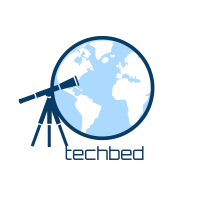WhatsApp: The Best Buy on Facebook Ever? It’s not easy for an acquisition to trigger a stir, with so much cash thrown around in Silicon Valley.
WhatsApp – The most significant purchase on Facebook ever?
The acquisition of WhatsApp by Facebook last year made exactly that, remarkable Google’s (GOOG) $3.2 billion acquisition of Nest Laboratories and Apple’s (AAPL) $3 billion acquisition of Beats Electronics, to become the biggest acquisition in 2014 and one of the largest tech acquisitions of all time.
With its initial $16 billion offer from Facebook, WhatsApp, a text messaging app used extensively worldwide, stole headlines. The app lost $138 million in 2013 and pulled in revenue of $10.2 million.
And how did Facebook win the company over? This article looks at the record-breaking acquisition of Facebook and the measures it took to get there.
Acquisition from WhatsApp
WhatsApp is an ad-free smartphone app that allows users to send unlimited messages to friends without paying data fees or using the cellular network.
The software is free to download (but for the first year, a $1 fee kicks in) and is a substitute to the cell provider’s standard text messaging network. Jan Koum and Brian Acton, two former Yahoo! (YHOO), created the app,
When Facebook revealed its intentions to buy WhatsApp in February 2014, WhatsApp’s founders added a $16 billion purchase price: $4 billion in cash and $12 billion left in Facebook shares.
The actual price Facebook paid is dwarfed by this price tag: $21.8 billion, or $55 per user. Facebook agreed to pay $19.6 billion, adding $3.6 billion to the initial price as reimbursement to Facebook’s WhatsApp workers for remaining on board.
Facebook share prices, however, rose from $68 to $77.56 by the time the regulatory approval process ended in October. By then, the 184 million Facebook shares agreed upon had inflated the final purchase price by an extra $1.7 billion.
For the first half of 2014, WhatsApp’s six-month sales totaled $15.9 million, and the company incurred a shocking net loss of $232.5 million, but the bulk of that loss was attributed to share-based compensation.
Why WhatsApp?
WhatsApp is far the largest acquisition by Facebook and one of the largest ever seen in Silicon Valley. It is more than 20 times bigger than the purchase of Instagram by Facebook, which made quite the splash in 2012.
That raises the question of $22 billion: why did Facebook split the bank to buy WhatsApp?
User growth is the response. About 500 million individuals use WhatsApp on a monthly basis, and more than 1 million users per day are now adding to the service. Seventy percent of WhatsApp users are active every day, compared to 62 percent for Facebook.
Additionally, 500 million photos are sent back and forth every day by WhatsApp users, about 150 million more than Facebook users. The app was launched in 2009 and, thanks to its astronomical growth, will reach 1 billion users before long.
Facebook possesses 1.39 billion monthly active users as of December 2014. The convergence of forces is likely to boost growth for both businesses to improve global connectivity through internet services.
User development comes first for Facebook and monetization later. In emerging markets where internet access is scarce, but WhatsApp is commonly used, WhatsApp can help drive Facebook’s growth. To these mobile user bases, Facebook can then gain entry.
Facebook’s Internet.org project, Facebook CEO Mark Zuckerberg’s proposal to introduce internet connectivity for two-thirds of the world that is not yet online, would also help to connect WhatsApp users in these regions.
Facebook claims, however, that as phone calls become redundant and text messages reign, it will benefit from WhatsApp down the road. This is why Zuckerberg invested one-tenth of his business’s market value purchasing the text messaging service, almost doubling Google’s bid. He effectively kept the company out of the hands of other tech competitors by doing so.
Previous Acquisitions on Facebook
Facebook’s acquisition strategy focuses on three main areas: acquisition of young talent, the addition of new technology, and competition buying-out. Since 2007, Facebook has purchased 42 firms.
Facebook’s first acquisition was Parakey, a web-operating system that allows uploading images, videos, and writing to the web more accessible. In 2007, Facebook bought the firm for an undisclosed sum.
In exchange, Facebook implemented Parakey’s software into its mobile app and accepted the company’s technique, which operates on the development of the Firefox browser. The company headquartered in Menlo Park purchased Friend Feed for $50 million in 2009.
Friend Feed technology, a site that incorporates real-time news and social media feeds, led to the “like” button of Facebook and modified news feeds’ functionality.
Facebook revealed in 2012 its intentions to acquire Instagram, a successful platform for photo sharing with 200 million active users.
Facebook intended to develop its own features for photo sharing and wanted to prevent any rival from first getting to the well-liked business. Facebook acquired Instagram for $1 billion: $300 million in cash and over $700 million in Facebook stock for the rest.
About the bottom line
In the global areas crucial to the growth of Facebook, WhatsApp plays a significant role. Facebook is concentrating on the future of international, cross-platform communications by placing monetization efforts on hold.
Facebook’s tentacles are closer to touching billions of people with WhatsApp’s purchase, and with a market of that scale, Facebook is sure to find a way to cash in eventually.
Thanks!!






































